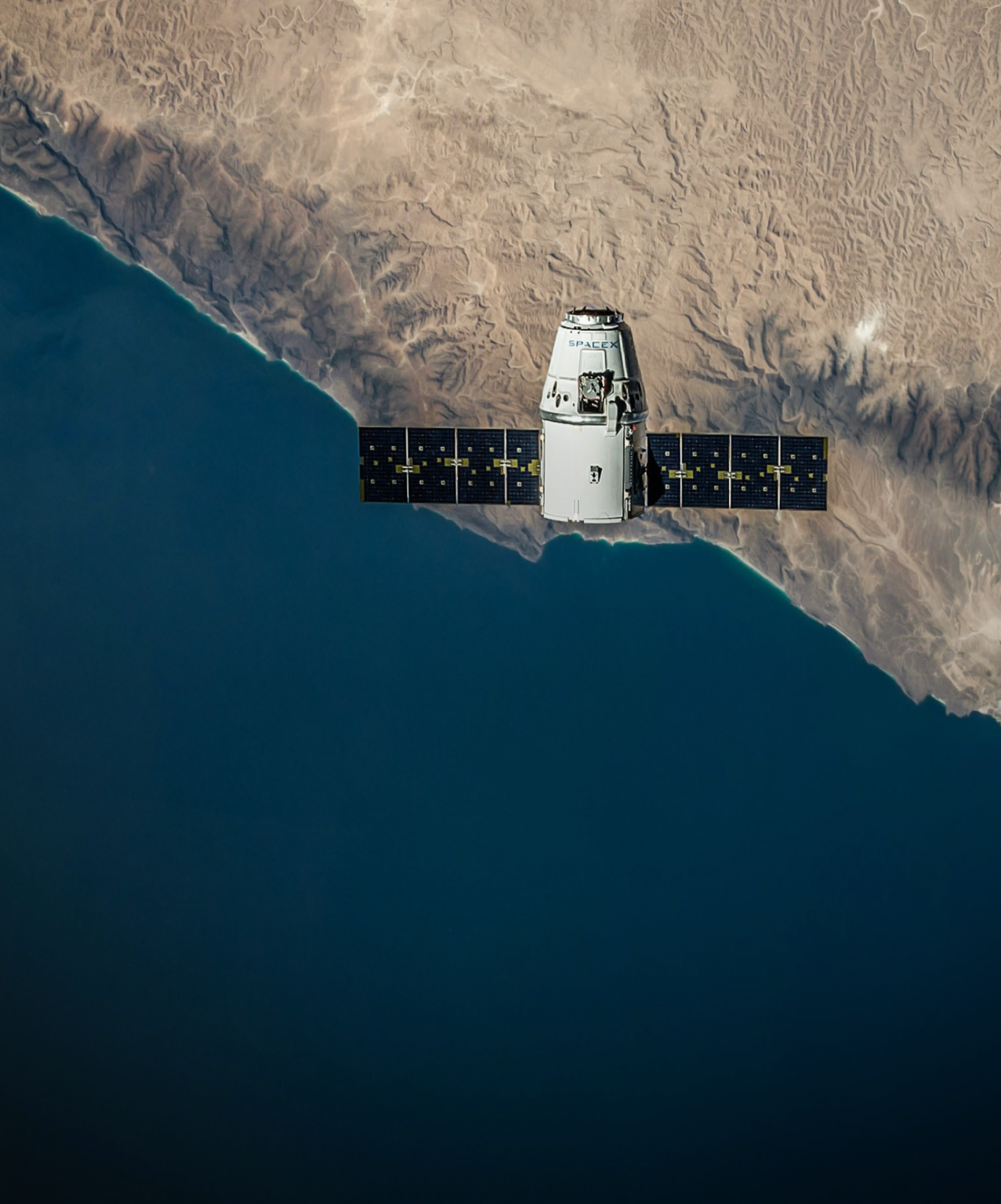Transforming Satellite Scheduling with Pasqal and Thales
Thales is a global leader in advanced technologies within three domains: Defence, Aerospace and Cyber & Digital, with over 81,000 employees operating in more than 68 countries. The company is renowned for its advanced systems, including air traffic control, avionics, and satellite technology.

Thales is a global leader in advanced technologies within three domains: Defence, Aerospace and Cyber & Digital, with over 81,000 employees operating in more than 68 countries. The company is renowned for its advanced systems, including air traffic control, avionics, and satellite technology. The Group invests close to €4 billion a year in Research & Development . Within Thales, the Research and Technology (TRT) department drives innovation, focusing on cutting-edge solutions like AI and quantum computing. Leading the quantum initiative is Frédéric Barbaresco, Segment Leader of Quantum Algorithm and Computing, who oversees efforts to develop mission-critical quantum solutions across Thales’ diverse portfolio.
Tackling the Growing Complexity of Modern Satellite Constellations
The rapid evolution of satellite constellations—from just a few to hundreds or even thousands—has introduced extraordinary complexity in mission planning and scheduling. Traditional algorithms struggle to handle the combinatorial optimization required for tasks like battery recharging, data dumping to ground stations, and avoiding cloud coverage, all while prioritizing urgent observation requests and maintaining mission flexibility. These constraints become exponentially challenging as the number of satellites increases.
Recognizing the limitations of classical approaches, Thales turned to quantum computing as a transformative solution. Collaborating with Pasqal, Thales redefined mission planning by leveraging Pasqal’s neutral atom quantum processors, which are particularly suited for encoding and solving complex problems like the Maximum Independent Set (MIS). This partnership has set the stage for scaling solutions to meet the demands of next-generation satellite constellations.
Thales’ quantum efforts are spearheaded by a multidisciplinary team of engineers and researchers across France, the UK, Canada, and Singapore. This team leverages decades of experience in scheduling algorithms, operational planning, and advanced computing. Working closely with Pasqal’s technical experts, Thales focused on translating operational challenges into problems solvable by quantum algorithms, specifically leveraging Pasqal’s unique neutral atom technology.
Thales and Pasqal collaborated to model the satellite scheduling problem as a Maximum Independent Set (MIS) problem—a computational challenge well-suited to Pasqal’s neutral atom processors. Through funding from PAck Quantique Île-de-France, the teams jointly developed and tested algorithms on Pasqal’s emulator and early-stage quantum computers. This approach drafted a quantum-centric approach to the optimization of satellite positioning and resource allocation under complex constraints, aiming to improve scheduling flexibility and reaction times. This use case is one of four identified by Thales Alenia Space for the European Space Agency’s QC4EO (Quantum Computing for Earth Observation) initiative, aimed at further advancing the scalability of the algorithm.
Benefits that go beyond industry
The quantum-enhanced scheduling solution holds transformative potential for industries reliant on satellite technology, from communications to defense and environmental monitoring. More efficient satellite constellations could optimize mission planning, reduce operational costs, and enable faster response times for urgent tasks. For instance, real-time rescheduling capabilities could dramatically accelerate the OODA loop (Observe, Orient, Decide and Act).
Thales is utilizing Earth observation satellites to monitor environmental impacts, including contrails—cloud-like trails left by aircraft—that are a significant contributor to climate warming. By optimizing satellite observations with quantum-enhanced algorithms, Thales aims to support efforts to reduce climate change.
The collaboration between Thales and Pasqal has been deeply synergistic. Pasqal provided technical expertise, emulators, and hardware, while Thales contributed domain knowledge and classical algorithm benchmarks to validate the quantum approach. Together, the teams formalized the problem, optimized algorithms, and presented their findings at major industry events. This partnership also highlighted the adaptability of Pasqal’s technology, allowing Thales to scale up solutions in parallel with advancements in quantum hardware.
Setting the standards of the future
Thales is optimistic about quantum computing’s potential to revolutionize satellite constellation mission planning. Moving forward, they aim to scale the solution to large numbers of satellites and integrate more constraints into the algorithms, such as energy optimization and real-time rescheduling. Additionally, they are collaborating with Pasqal and other partners on tools to validate and certify quantum algorithms, ensuring they meet stringent industry standards. With a clear roadmap toward operational deployment, Thales envisions quantum computing becoming a cornerstone of its mission-critical technologies, enabling faster, more efficient, and more secure satellite operations.
-
 Press release 17/05/2024
Press release 17/05/2024Pasqal and Thales Successfully Solve Satellite Planning Challenges with Neutral-Atom Quantum Computing
-
 Press release 14/12/2021
Press release 14/12/2021Thales, Pasqal, Paris Region and GENCI, launch a new partnership to explore the use of Pasqal’s quantum technology applied to critical systems’ optimization